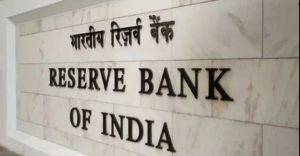RBI proposes easing investment norms in AIFs for Banks, NBFCs

Mumbai: The Reserve Bank Monday proposed to ease norms for investments by banks, NBFCs and other regulated entities in Alternate Investment Funds.
In December 2023, the central bank had issued guidelines relating to investment by the regulated entities (REs) in Alternative Investment Funds (AIFs), with the objective of addressing certain concerns relating to possible evergreening through this route.
“On a review, it is observed that the regulatory measures undertaken by the Reserve Bank have brought financial discipline among the REs regarding their investment in AIFs,” RBI said.
Besides, stock market regulator SEBI has also issued guidelines requiring inter alia specific due diligence with respect to investors and investments of the AIFs, to prevent facilitation of circumvention of regulatory frameworks.
In view of these developments, the Reserve Bank of India on Monday issued the revised draft directions on investment by Regulated Entities (RE) in AIFs for comments from stakeholders and public.
The RBI has proposed that a single RE’s contribution to any AIF scheme should be capped at 10 per cent of its corpus. Collectively, a ceiling of 15 per cent shall apply for investment by all REs in an AIF scheme.
Further, investments by an RE up to 5 per cent of the corpus of a AIF scheme shall be allowed without any restriction.
“If the investment by any RE exceeds five per cent of the corpus of the scheme, and if the scheme has a downstream debt investment in a debtor company of the RE (excluding equity shares, compulsorily convertible preference shares and compulsorily convertible debentures), then the RE shall be required to make 100 per cent provisions to the extent of its proportionate exposure,” the draft said.
The RBI further proposed that it may exempt certain AIFs, in consultation with the government, that have been set up for strategic purposes.
It has invited comments on the draft directions till June 8, 2025.
News